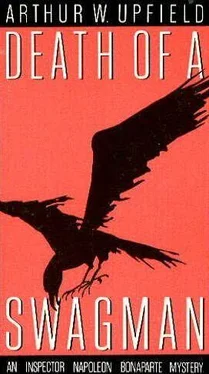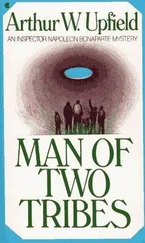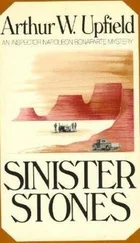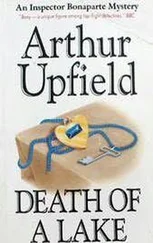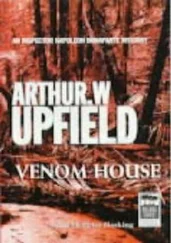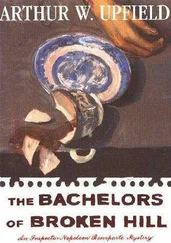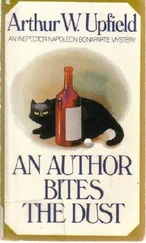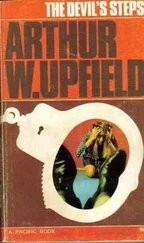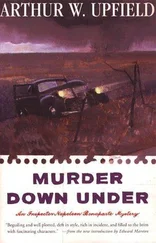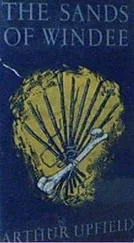Arthur Upfield - Death of a Swagman
Здесь есть возможность читать онлайн «Arthur Upfield - Death of a Swagman» весь текст электронной книги совершенно бесплатно (целиком полную версию без сокращений). В некоторых случаях можно слушать аудио, скачать через торрент в формате fb2 и присутствует краткое содержание. Жанр: Классический детектив, на английском языке. Описание произведения, (предисловие) а так же отзывы посетителей доступны на портале библиотеки ЛибКат.
- Название:Death of a Swagman
- Автор:
- Жанр:
- Год:неизвестен
- ISBN:нет данных
- Рейтинг книги:4 / 5. Голосов: 1
-
Избранное:Добавить в избранное
- Отзывы:
-
Ваша оценка:
- 80
- 1
- 2
- 3
- 4
- 5
Death of a Swagman: краткое содержание, описание и аннотация
Предлагаем к чтению аннотацию, описание, краткое содержание или предисловие (зависит от того, что написал сам автор книги «Death of a Swagman»). Если вы не нашли необходимую информацию о книге — напишите в комментариях, мы постараемся отыскать её.
Death of a Swagman — читать онлайн бесплатно полную книгу (весь текст) целиком
Ниже представлен текст книги, разбитый по страницам. Система сохранения места последней прочитанной страницы, позволяет с удобством читать онлайн бесплатно книгу «Death of a Swagman», без необходимости каждый раз заново искать на чём Вы остановились. Поставьте закладку, и сможете в любой момент перейти на страницу, на которой закончили чтение.
Интервал:
Закладка:
He crossed the sandy ground to the door in the butcher’s rear fence, where in this shelter he saw the tracks of boots made by a man entering those premises. They were still fairly clear-cut, but the man who made them had not come from the horse yard but from the rear yard of the hotel.
On either side of the butcher’s premises was a vacant allotment, unfenced and eaten bare of vegetation by the town goats. They were merely bare, sandy patches of ground open wide to the wind that by now would have smoothed out any tracks made by human footwear.
Bony returned to the horse-yard gate and there leaned against one of the posts whilst rolling a cigarette. Assuming that it had been the parson who had visited the mill at Sandy Flat and had ridden back at top speed to get away from his tracker, as well as to reach his home before the day broke, he would be anxious to reach the hard roadway of the street, where he could walk without leaving tracks after removing the hessian from his feet. To accomplish this, he needs must cross from the horse-yard gate to one of those empty allotments, cross that to the sidewalk, and cross the sidewalk to reach the macadamized road.
Still assuming that it was James, the parson would cross the allotment on the east side of the butcher’s premises, which would be the side nearest the parsonage. Bony endeavoured to project himself into the mind of the Rev. Llewellyn James.
On leaving the gate, he crossed to the allotment eastward of Mr Fanning’s house and shop. He passed over the length of that allotment, and so came to the sidewalk bordering the road. The surface of the sidewalk here was covered with a thin layer of sand.
Opposite the centre of the allotment frontage grew one of the street-bordering pepper-trees. It was a fine specimen which would certainly give a black shadow on a moonlit night. There, beneath this leafy tree, seated on the curb, the hooded man might well have removed the hessian from about his feet, and then have gone on to his home in day shoes, or even with his feet bare.
The rising sun was gilding the summit of the Walls of China when Bony came to lean against that pepper-tree, as though he had done little else all his life but lean against something. The wind had smoothed all tracks from the thin covering of sand upon the sidewalk. It had piled into little mounds in the dry gutter sand which had been carried across the road, and here and there in the gutter were little piles of the dead needle-pointed leaves of many pepper-trees.
Two such piles of leaves were notso symmetrical as those created by the wind. They were flattened and spread out. Bony went down on hands and knees to bring his eyes closer to those two piles of leaves separated by about ten inches of fine sand. With a twig he teased the massed leaves farther apart and found three strands of jute fibres. He found more. Two yards farther down the gutter he found a strip of hessian measuring approximately one inch in width and ten inches in length.
He sat on the curb with this strip of hessian stretched between the forefinger and thumb of each hand. The sun was now peeping above the Walls of China, and its rays came along the street, striking upon his hands and the hessian strip held taut.
The material was not clean. There was in it a stiffening substance, and therewas on its surface and within the folds of the edges many brown hairs. Bony sniffed at the material. He smelled the sweat of a horse. The brown hairs were similar to those of the horse owned by the Rev. James.
So there, where those two small wind-created heaps of dead leaves had been depressed, was where the hooded man had sat with his heels resting upon them whilst he removed the hessian from his feet. He had then stood up and walked along the macadamized roadway, leaving in the moonlit night that strip of hessian, sweat-stiffened and impregnated with the hairs of the animal he had ridden.
Rising to his feet, he walked slowly down the street at the edge of the sidewalk. His eagle gaze scrutinized the surface of the sidewalk on his right and the gutter on his left. He found nothing. He went on past the entrance to the parsonage, past the entrance to the parsonage garage, on and past the church. He retraced his steps. For a moment he halted at the driveway, and for another he loitered outside the parsonage gate. Beyond that gate he saw the imprints of tennis shoes on the sheltered path. Between the gate and the roadway the sidewalk was blown clear of sand, and its hard surface registered no imprints. The tennis shoes had been worn by the minister, and the imprints might have been one hour or ten hours old.
The wind’s velocity was increasing with the rising of the sun, as Bony sauntered back up the street. A town dog came out of a gate to wrinkle its nose at him in friendly fashion, and to it Bony said:
“We don’t mind how hard the wind blows. It has done all it could to frustrate me. Now you had better go home again, because I am going to call on Sergeant Marshall.”
Chapter Nineteen
Another Murder?
AT HALF-PAST SIX the clock on the table at the sergeant’s bedside began its uproar, and a large red hand automatically reached for it and snapped off the ringing. For a few minutes the sergeantlay fighting sleep and uttering a series of moans and grunts meant to inform his wife of the martyrdom imposed upon him by the necessity of rising to light the kitchen fire so that he might have the smallest kettle boiling for tea when she appeared in the kitchen. Then, without bothering to slip on a dressing gown, he rolled out of bed and thudded in bare feet along the passage. Inside the kitchen doorway he halted abruptly.
“Well, I’m-”
“Don’t say it,” Bony pleaded, a hand raised towards Marshall. “If you say it, it will cost you a shilling. I am collecting for Lawton-Stanley. I’ve had my breakfast and the water is boiling for your early cup of tea.”
Marshall surveyed the table. Used eating utensils were pushed back to become a border to notebooks and a writing pad and pencils. It was obvious that Bony had occupied the kitchen for some time, and here he was now as well groomed as ever.
“Never heard you come in. Never heard a sound,” Marshall said.
“I can be silent when I want to,” stated Bony airily. “I borrowed your razor and a comb and towel. Now I’ll make the tea, and you can take a cup in to your wife. I’ve had breakfast, and before yours is ready I can tell you a thing or two which will interest you. There is a deal of work ahead for both of us.”
“Yep! Looks like it, too,” Marshall averred, and watched Bony brew tea in the proper manner.“Thought I locked the doors and the windows out here.”
“You did, but I unlocked the scullery window. Count twenty, and then I’ll pour tea. Hand me that tray.”
“What for?”
“That on it you might carry a cup of tea to your wife without shaking half of it into the saucer. Let me see. Ah, yes, I remember. In this tin. A biscuit on a plate to accompany the tea.”
“You aim to give her breakfast in bed?” demanded Marshall.
“No. Only morning tea. Sometimes, when I am home, which is seldom, I prepare morning tea for my wife, so you see I know it’s done… like this.”
The tea and biscuits on the tray were presented to the astonished sergeant. He said:
“D’youknowwhat my missus will say when she sees this?”
“ ‘Thankyou, dear’?”
“She’s going to say,” Marshall said grimly,“ ‘You must be sickening for something. Where’s the pain?’ ”
“Don’t believe anything of the kind. Now get going. I’ll load another tray which we can take to the office.”
Evidently not feeling very happy about it, Marshall departed, and when he returned he muttered:
“She said-she said, ‘Give my thanks to Bony.’ Seems to have guessed you were here.”
Читать дальшеИнтервал:
Закладка:
Похожие книги на «Death of a Swagman»
Представляем Вашему вниманию похожие книги на «Death of a Swagman» списком для выбора. Мы отобрали схожую по названию и смыслу литературу в надежде предоставить читателям больше вариантов отыскать новые, интересные, ещё непрочитанные произведения.
Обсуждение, отзывы о книге «Death of a Swagman» и просто собственные мнения читателей. Оставьте ваши комментарии, напишите, что Вы думаете о произведении, его смысле или главных героях. Укажите что конкретно понравилось, а что нет, и почему Вы так считаете.
